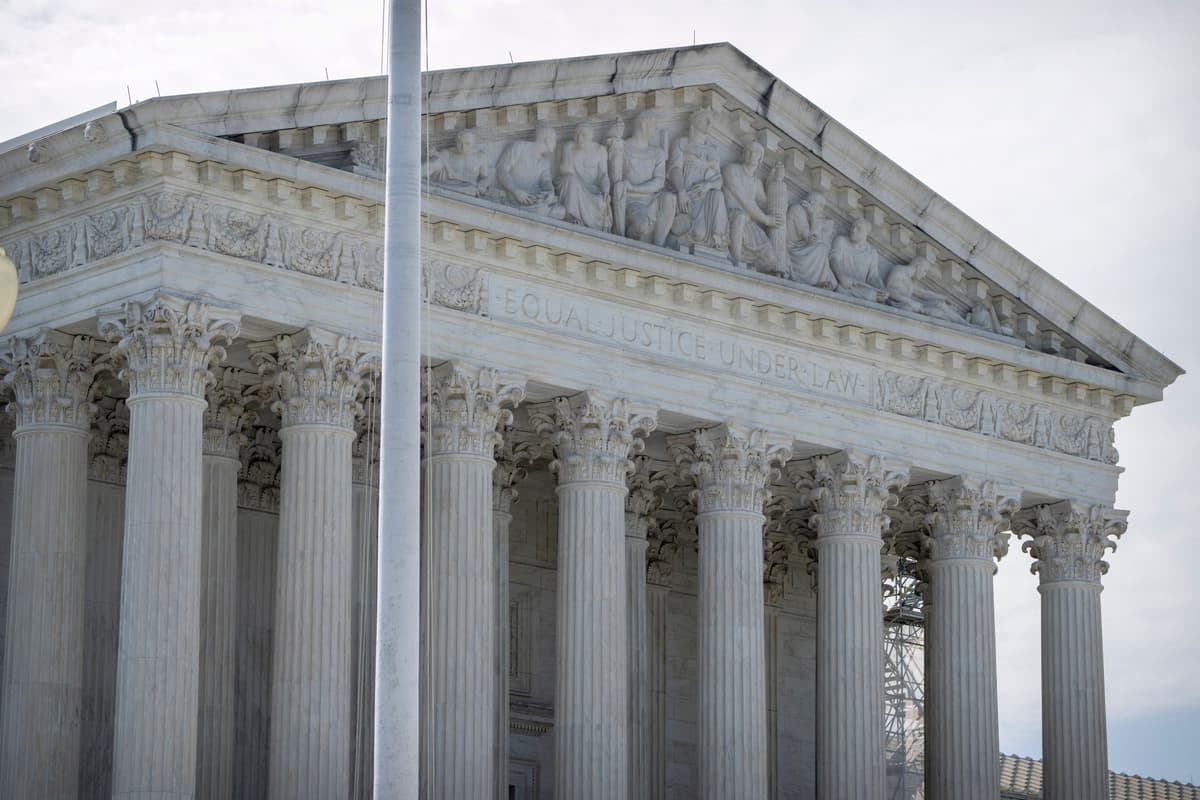Supreme Court Rejects GOP’s Attempt To Block the Counting of Some Provisional Ballots in Pennsylvania, Likely Impacting Thousands of Votes
Republicans say the decision could lead to election results being ‘tainted by illegally cast ballots.’

The Supreme Court on Friday rejected Republicans’ bid to block election officials in Pennsylvania from counting provisional ballots cast by voters whose mail-in ballots were voided for technical errors.
Republicans say the decision could lead to election results being “tainted by illegally cast ballots.”
The Republican National Committee’s case centered on a rule change by Pennsylvania’s Supreme Court made after two voters in the state’s 2024 primary election did not have provisional ballots counted when their mail-in ballots were rejected, Justice Samuel Alito noted.
Last month, the Pennsylvania Supreme Court had ruled in a 4-3 decision that voters should be able to cast a provisional ballot if their absentee ballot was rejected for a technical reason, such as not being enclosed in a privacy envelope.
However, Republicans appealed to the federal Supreme Court arguing the decision “dramatically change[d] the rules governing mail voting.” They argued that the state supreme court had in effect arrogated the responsibility of regulating federal elections.
“Without this Court’s intervention, the county boards will count ballots that are unlawful under the Election Code. Once that happens, it will be impossible to repair election results that have been tainted by illegally counted ballots,” the Republican National Committee also said.
Justice Alito wrote that the question in the dispute “is a matter of considerable importance,” especially in light of the approaching election. Yet “even if we agreed with the applicants’ federal constitutional argument (a question on which I express no view at this time), we could not prevent the consequences they fear.”
The justice added that “the lower court’s judgment concerns just two votes in the long-completed Pennsylvania primary.”
Staying the judgment of the lower court in the case, Justice Alito said, “would not impose any binding obligation on any of the Pennsylvania officials who are responsible for the conduct of this year’s election.”
He noted that “because the only state election officials who are parties in this case are the members of the board of elections in one small county, we cannot order other election boards to sequester affected ballots.”
If the Supreme Court had sided with Republicans, the decision could potentially have impacted thousands of votes.
The MIT Election Lab estimates that in 2020, Pennsylvania rejected 1.29 percent of mail-in ballots. While that is a small percent of the millions of votes cast in Pennsylvania, letting voters cast a provisional ballot if their absentee ballot had a technical issue could amount to thousands of votes that could impact the results of a close election.
A law professor at New York University, Richard Pildes, estimates that the Pennsylvania case could impact roughly 25,000 votes based on the absentee ballot rejection rate in recent elections.

